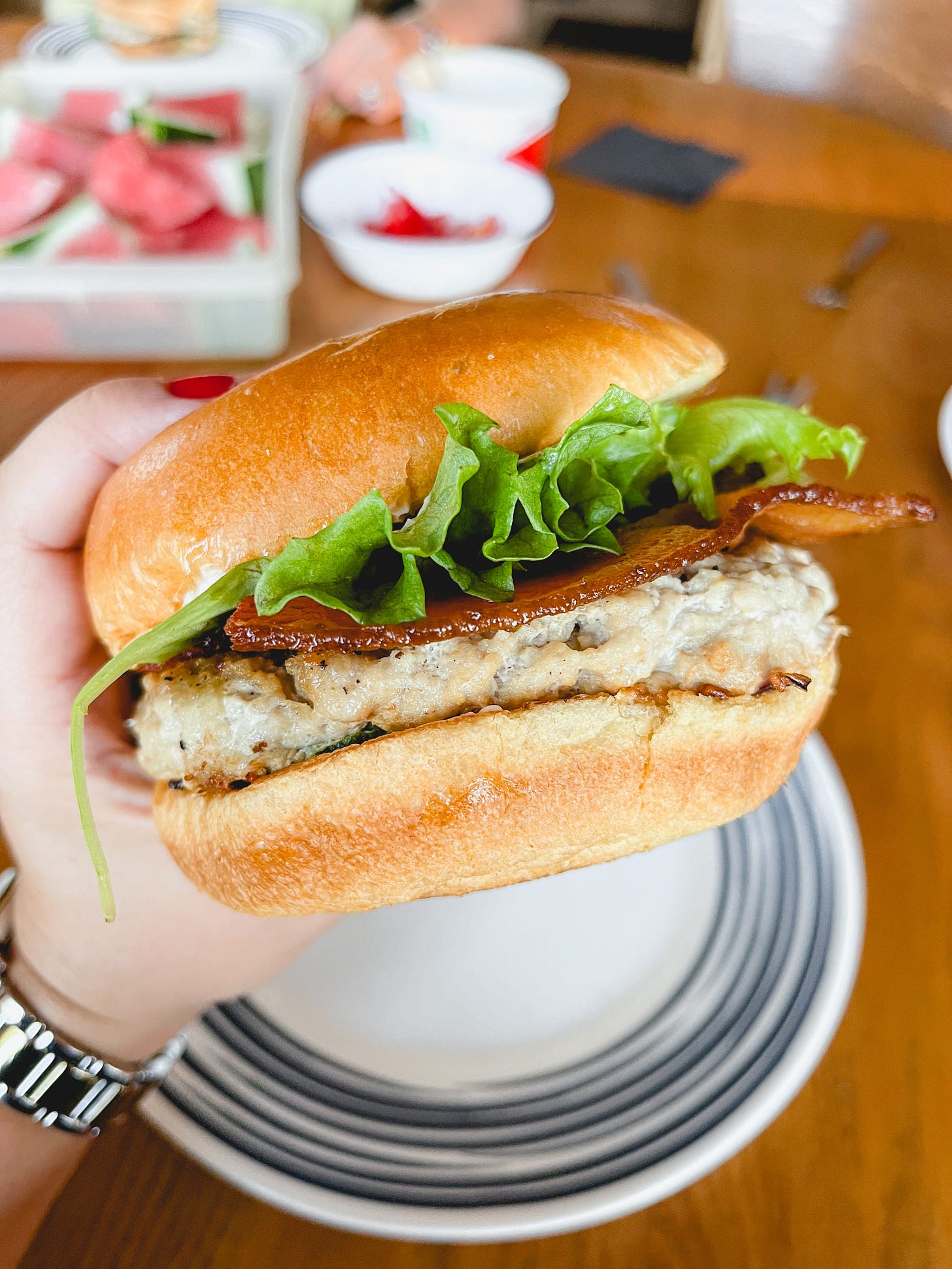How to be a better critic of dieting claims
You don’t have to believe everything you see on the Internet. Here’s the process I go through for debunking.
I set a social media boundary on my phone a while ago—meaning I don’t have it on my phone at all. I still interact with it on my computer, but I’m not carrying around my laptop like I would my phone, and it eliminates mindless hours of scrolling. So now, when I have some time to kill and feel a need to scroll, I’ll scroll through Google News. I actually find it beneficial when learning about newly released studies and nutrition science research. But every now and then I’ll come across an article that just doesn’t sit right with me. This week, it looked like a story debunking veganism—but really, it was a story about how a lot of nutrition science research is mostly based on faith and assumption.
You can just imagine my fury.
PAID: Listen to the essay here!
If you care, here’s the article. It was written by the co-founder of a company promoting the reduction of meat intake—but not limiting it entirely. So of course there’s an article trying to “debunk” 100% plant-based eating and veganism.
Originally I wanted to rant this all over Twitter (I had a thread ready to tweet and everything), but I decided against it. There are quite a few points in the article that are true—like how vegan influencers are making bogus health claims, how certain studies are skewed to give specific results, and how publications post contradictory health advice.
But it was this quote that got me pretty heated.
“The fact is, nutritional science just isn’t at a point where we can confidently dole out sweeping directives on how people should eat.”
…seriously? Why are we still discrediting scientists?
Honestly, I think this is just another clear example of someone making a claim about food in order to promote a company’s product and ideals—and we see this a lot. Diet and fitness programs, health and wellness influencers, big and small companies trying to twist the marketing of their products in just the right way. None of this is new to any of us.
And yet…we seem to keep falling for it.
Once I finished reading, it did get me thinking about how we tend to act like sheep in a herd when it comes to our health—following along with whatever the next big “it” thing is in the world of health and nutrition. We look for quick fixes to solve our problems instead of looking at the big picture with a clear, critical eye.
So what if we didn’t act like sheep in a herd? What if we took our power back?
We’ve been told what to eat our entire lives. From sitting in the high chair to trying to replicate some “successful” fad diet, we’ve been relying on others for the health of our own bodies.
Yet, no one else knows your body like you do. So why let someone else tell you how to take care of it?
How to take the power back for your health
I’ve been thinking a lot about this ever since learning that I have a hard time digesting lactose. This realization confirmed that I wasn’t crazy about feeling nauseous or having random sharp stomach pains after eating, even though everyone else around me said eating dairy was normal and fine. Sure, it is fine for them. But that doesn’t mean it’s the same story for my body.
Ever since learning this, I’ve thought more about other things I consume or do because others tell me it’s “just what you do.” Like…can my body actually handle alcohol? (Honestly, not really.) Do I also have issues with gluten as well? (Nah, I’m fine—but I feel like garbage if I overdo it on the starches.) Should I be swapping out rice for quinoa? (Hard pass, my body can’t digest it and it hurts literally every time.)
Again, this is my body and my health. What works for me is likely not going to work for you, because your body is uniquely different. This is why I think it’s vitally important to have a vetting system in place when it comes to what you read online.
Here are the questions I ask myself when I come across a new health claim online.
1. Who’s writing this?
It’s important to know the context of the writer before even diving in. Does this person have any credentials? Do they know what they are talking about? Or are they writing from the view of their company’s ideals? Even if it’s me! You should absolutely question and hold me accountable for my research. It means you care about your health.
2. Who’s sponsoring this?
This is important to know for articles and research studies. It is true—some studies out there are skewed in the favor of certain companies, like Coca-Cola sponsoring research that says sugar-sweetened beverages aren’t actually that bad for you, or the “complex conundrum” questioning if animal protein really affects cardiovascular health—sponsored by numerous national associations for egg, beef, pork, and poultry production. You can usually find this kind of information in sections such as disclosures, conflict of interest, sponsored, or notes at the bottom.
3. Was the study fair?
If someone is making a claim based on a recent study, read the abstract. What were the methods conducted for the study? What kinds of people participated? Or was it set up in someone else's favor?
4. What do medical experts say?
Honestly, I wouldn’t trust what anyone was saying unless a doctor (with nutrition certifications) or a registered dietitian is involved. I have yet to come across an expert whose viewpoints contradict the general ideals of good nutrition—get a sufficient amount of protein and fiber, eat a variety of plants and whole foods, move your body, don’t restrict yourself because extreme dieting always backfires, etc.
5. Does this work for me?
Now that you’ve sufficiently done the background check of whatever you’re reading, you can **determine if it works well for you or not. Just because you’re reading something and it works for others does not mean it works for you. Even if dietitians say drinking chia seed water is technically fine for constipation…what does your body say? Is it something that actually works for you and your health? It’s okay if the answer is no—this just means you’re allowing yourself to take back the power of choice.
Because hey! If you like eating a 100% plant-based diet and you’re getting enough of the nutrients you need—like protein, iron, calcium, and vitamin D, which commonly come from animal-based sources—then why not eat the way that works for you?
But can we really trust nutrition science research?
The field of nutrition science is still relatively new—the research we have has really only been discovered within the past 100 years. Plus, we’ve seen a lot of contradicting advice out there—remember when eating fat was the problem so we made our products fat-free and loaded them with sugar? Now it feels like it’s popular to follow the complete opposite—avoid sugar and carbs at all costs and eat as much fat as you want.
However, I do still have faith in the field of nutrition. Even though it seems there are so many studies being released with different suggestions on how to eat, truthfully, they hilariously all point to the same way of eating. Choose whole, unprocessed foods and reduce your intake of foods that increase your risk of disease. Seriously, it’s that simple. Dietitians and doctors agree.
This article also tries to make the point that nutrition science studies are observational and not controlled trials, but that’s not always true—there are plenty of randomized controlled trials done in regards to nutrition that we can learn from.
I’m not saying we all need to go 100% plant-based, which is what this article is trying to discredit. But I am pointing out there is enough research out there that we can trust for tips on eating for better health. You don’t have to listen to some big wig at a major company that’s telling you how to eat. You are in charge of your own health. You have the power to make those decisions.
Oh, and to finish this up (and bring it back to that original article), study after study after study after study point out the positive benefit of plant-based eating on your health. It lowers your risk of cardiovascular disease as well as type 2 diabetes and all-cause mortality, lowers cholesterol and blood pressure, and even improves cognitive function. Sure, there is still a lot for us to learn. But after talking to countless experts, I know for a fact that eating more plants is good for you. And that’s not based on opinion or faith or assumption.
I can’t stop making these Bacon Jalapeño Smashed Chicken Burgers.
The recipe comes from Joy The Baker. If you don’t follow her on Instagram, honestly, you should. She’s just one of those people that make the platform fun to engage with. She’s real and personal and funny and isn’t afraid to make things look messy. She’s such a great representation of what life looks like in the kitchen—which sometimes means eating a gooey cinnamon roll over the kitchen sink. It just happens sometimes, ya know?
So if you need an easy summer meal that, again, does not turn on the oven (y’all know how much I hate that), these chicken smash burgers are going to be a new go-to.
Listen to the weekly essay in the exclusive paid podcast. Would rather listen than read? Subscribe today!
Photo by Tetiana SHYSHKINA on Unsplash








Totally agree that the diet you can stick is the one that will caused the least amount of stress, and therefore most likely to work. But I think many people don’t want to take ownership over what they eat, and just want to be told (requires less thinking). And even the people who do take ownership, there is so much mixed messaging in the media because of the reasons you stated, they get frustrated and confused! I mean, I read an article one week saying an egg is amazing for me, the next week I read one saying “eggs are as bad as smoking”!!! Cmon man!!!